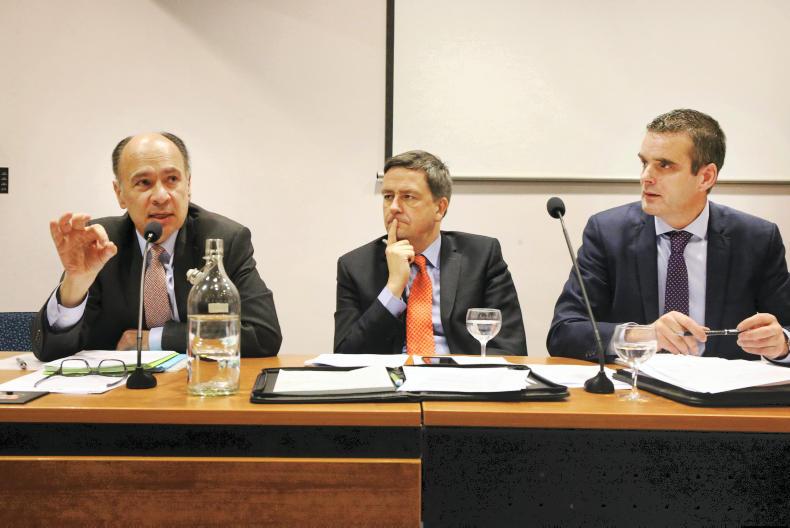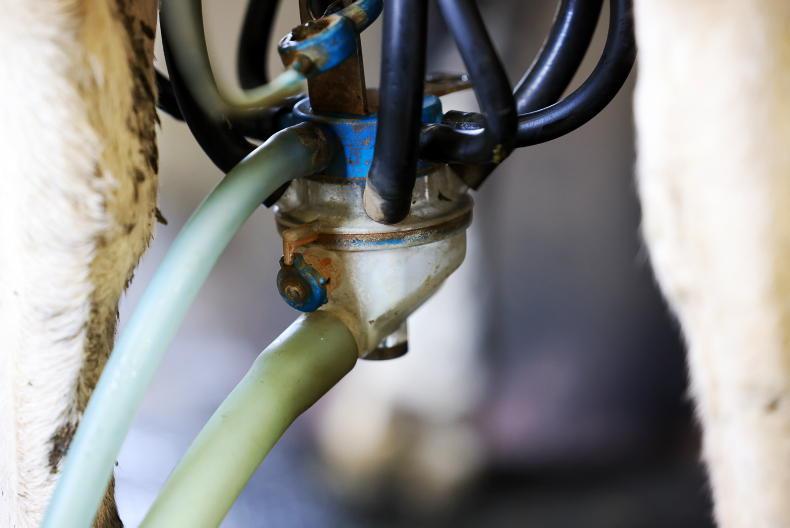The future of common agricultural policy (CAP) is likely to affect every farmer in Europe and change is in the air as more focus is put on sustainability, Brexit and new international trade agreements.
Tassos Haniotis from the European Commission told the IFA this week that he favoured less regulation from Brussels.
But Haniotis – director of strategy, simplification and policy in DG Agriculture – pointed to three key reasons why CAP had to change.
1. Evolution of world market price.2. Overall trade environment changes.3. Climate change.These points tie in with changes over the years, including a recent trade deal between Europe and Japan, the impact of Brexit and a public-driven focus on farm sustainability and carbon emissions.
However, CAP payments make up roughly 40% of individual farmers’ incomes and what concerned farm representatives most during the address was the impact any changes to CAP could have on farmers’ incomes.
Over the last decade suckler farmers have seen a reduction of €200/cow in terms of income support and the issue of coupled payments was raised by members of the audience in relation to the sector.
Calendar farming
In a refreshingly frank question and answer session, Haniotis said that the idea of coupled payments concerned him because “the more you give to coupled support, the less you give to de-coupled support”.
Haniotis also said that he favoured less regulation from Brussels and a more member state-led approach to farm subsidy schemes, such as GLAS.
The problem with greening is we prescribe, from Brussels, a one-fits-all approach.
He went on to explain how that clearly didn’t work for every farmer in Europe, given varying weather conditions and land types.
Many farmers have expressed frustration with the calendar farming system over the years, and will be heartened to hear indications from Brussels that changes could be wrought to CAP regulations in the future.
Haniotis left the crowd with the impression that the Commission is likely to allow member states to individualise schemes to suit their own regions, with less interference from Brussels, and many farmers will be looking keenly to the next CAP budget to see that their hopes are realised.
Read more
Satellites monitor farms every five days
CAP budget compromise emerging
The future of common agricultural policy (CAP) is likely to affect every farmer in Europe and change is in the air as more focus is put on sustainability, Brexit and new international trade agreements.
Tassos Haniotis from the European Commission told the IFA this week that he favoured less regulation from Brussels.
But Haniotis – director of strategy, simplification and policy in DG Agriculture – pointed to three key reasons why CAP had to change.
1. Evolution of world market price.2. Overall trade environment changes.3. Climate change.These points tie in with changes over the years, including a recent trade deal between Europe and Japan, the impact of Brexit and a public-driven focus on farm sustainability and carbon emissions.
However, CAP payments make up roughly 40% of individual farmers’ incomes and what concerned farm representatives most during the address was the impact any changes to CAP could have on farmers’ incomes.
Over the last decade suckler farmers have seen a reduction of €200/cow in terms of income support and the issue of coupled payments was raised by members of the audience in relation to the sector.
Calendar farming
In a refreshingly frank question and answer session, Haniotis said that the idea of coupled payments concerned him because “the more you give to coupled support, the less you give to de-coupled support”.
Haniotis also said that he favoured less regulation from Brussels and a more member state-led approach to farm subsidy schemes, such as GLAS.
The problem with greening is we prescribe, from Brussels, a one-fits-all approach.
He went on to explain how that clearly didn’t work for every farmer in Europe, given varying weather conditions and land types.
Many farmers have expressed frustration with the calendar farming system over the years, and will be heartened to hear indications from Brussels that changes could be wrought to CAP regulations in the future.
Haniotis left the crowd with the impression that the Commission is likely to allow member states to individualise schemes to suit their own regions, with less interference from Brussels, and many farmers will be looking keenly to the next CAP budget to see that their hopes are realised.
Read more
Satellites monitor farms every five days
CAP budget compromise emerging










SHARING OPTIONS